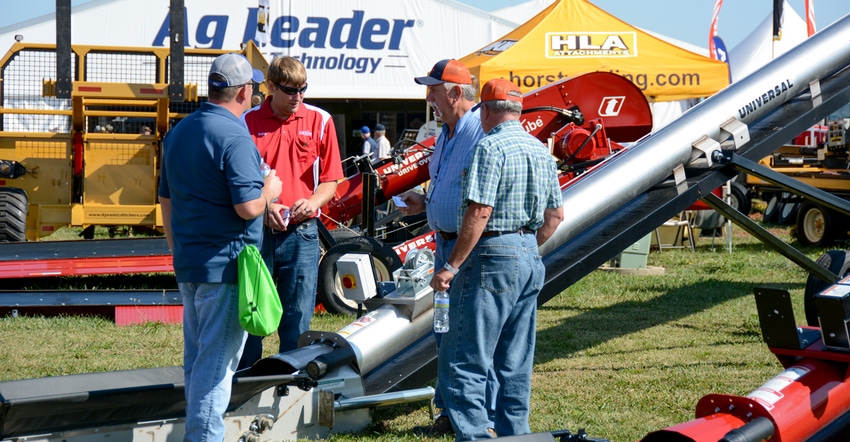October 21, 2020

Last month we explored the idea of when it’s time to replace a machine. With equipment sales in a slump for five years, it’s logical that some of the equipment on your place is aging. Crop prices are trending up — somewhat — and there have been payments to farms.
While those crop price and support payments may just be covering the bills, it may also be time to explore your true capital purchase needs. Of course, one reason to think about this now is for tax purposes.
These days, the extended Section 179 program and accelerated depreciation potential can be pretty handy for cutting the tax bill — provided you need the machine and have the cash. To claim that deduction, however, you must possess the machine.
The state of the farm equipment business is changing. Dealers are running on tighter margins, which means they don’t have a large inventory like they may have had in the past. In part, that’s due to tighter floor-planning programs too.
A floor-planning program means a manufacturer will deliver a machine to a dealership but not take payment on the machine for several weeks or months — in essence, financing that machine to be on the dealer’s lot.
The appetite for that kind of “financing” is changing, which means dealers may have less on hand. Snap purchase decisions at tax time, perhaps for a machine you’ve been thinking about buying for some time — so not really a snap decision — may be more difficult. With less inventory, getting the tractor, implement or another tool you want may not be easy. I didn’t say impossible, just not easy.
It’s also a little more difficult to get out and see new equipment these days, with farm shows going virtual, though virtual events can be a reference tool.
For example, the recent Farm Progress Virtual Experience (note, this is a bit of a shameless plug) offers detailed demonstrations of more than 100 pieces of equipment. You can see each in action with commentary, and the developers of the site have parsed out those demonstrations.
That means you don’t have to watch an hourlong demo to find the machine you want; these videos are now sorted and available to peruse at your leisure, on your phone, tablet or desktop. Just visit FPVExp.com and click on “Demos” at the top of the page. You’ll need to register, but that only takes a moment, and then you get access to all the field demonstrations, Ride ’n’ Drive videos and breakout sessions.
And for 2020, that’s the new tool for finding new machines and seeing how they work. When possible, dealers are demonstrating machines where they can — always a good way to make a decision. But this is a changed environment, and more planning will be necessary than in the past.
Equipment buying 2020-style
First, consider the dealer with whom you want to work. These days, all equipment performs well — it’s service and support that matter. Even if it’s a whole new color for you, if the dealer is strong, that brand is worth considering.
Second, work through financing options. Sometimes is makes sense to use equipment company credit; sometimes it makes sense to use your bank. That’s not always an easy decision. But there are lease options for equipment too, which also have tax implications. Give yourself time to weigh the options.
Third, you may not be ready to buy in 2020, but starting a conversation with a dealer today can be good for that long-term planning I discussed last month. It’s worth thinking about.
Farmers aren’t usually considered good shoppers, but these days, with every manufacturer turning up the tech heat on equipment, a little browsing can be a good thing.
About the Author(s)
You May Also Like






